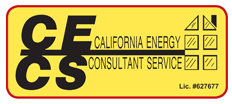Your AC is probably doing a lot of work right now. We’re in the middle of a bad heat wave, and most people are running their AC 24 hours a day – even at night – to keep their house cool.
There is little as frustrating, then, as when the air conditioner doesn’t appear to be cooling. You look outside and see that the AC is spilling, but you don’t really feel any cool air. What is happening? And why?
We can’t know for certain unless you call us for HVAC maintenance and tune up. But we can make guesses. The good news is that it is likely an easy and simple fix, but it could also be something more significant or be a sign of a long term problem.
Common Reasons for Lack of Cold Air
Before we even begin, it’s a good idea to make sure that the AC is on. Usually, this is obvious, and of course if you see your air conditioner itself running then it is probably on, but occasionally we do get calls from people that have the fan on but not the AC. So double check that before we begin.
Next, consider the following causes:
- Dirty Air Filters
Clogged or dirty air filters can significantly impede airflow, causing the AC unit to struggle in cooling the air effectively. The clogged filter itself can prevent cool air from flowing, and sometimes when the filter doesn’t flow, it also lead frozen compressors, which also blog cold air. Replacing the filter is typically enough to solve this issue.
- Other Frozen Compressor
Dirty air filters are not the only cause of a frozen compressors. Many issues with the HVAC unit can cause compressors to freeze, such as a system more powerful than the unit requires, a faulty blower motor, dirty ducts, something obstructing air flow, etc. All these can freeze the compressor. Allowing the fan to run with the AC off can get the ice to melt, which helps to get the AC back in action, but depending on the problem it could happen again.
- Refrigerant Levels
Low refrigerant levels are a common cause of inadequate cooling. The refrigerant is essential for the cooling process, and a leak or insufficient amount can lead to warm air being circulated. A professional HVAC technician should check and refill the refrigerant, as handling it requires specialized skills and equipment.
- Blocked Condenser Unit
The outdoor condenser unit plays a vital role in the cooling process. If it is obstructed by debris, dirt, or vegetation, it can hinder the dissipation of heat. Ensure that the area around the condenser unit is clear and clean, allowing for proper airflow and heat exchange.
- Faulty Compressor
The compressor is the heart of the air conditioning system. If it malfunctions, the system cannot cool the air effectively. Symptoms of a faulty compressor include strange noises or the unit failing to turn on. This issue typically requires professional diagnosis and repair.
- Electrical Issues
Electrical problems, such as a tripped circuit breaker or a blown fuse, can prevent the AC unit from operating correctly. Check the electrical panel for any issues and reset the breaker if necessary. If the problem persists, it may indicate a more significant electrical issue that requires professional attention.
- Ductwork Leaks
Leaky ductwork can result in cool air escaping before it reaches the desired areas. Inspect the ducts for any visible damage or disconnected sections. Sealing the leaks can improve the efficiency of the cooling system and ensure that the cool air reaches the intended spaces.
What to Do Next
The easiest thing to do is make sure that your filter has been replaced recently. It should be replaced fairly often, so if it’s clogged, that may be enough to fix the problem. Let your fan run with your AC off for a bit as well to allow any ice to melt, if applicable.
However, if that’s not enough, or the issue recurs, or it’s been a long time since you last had your AC levels checked, make sure that you contact Cal Energy today for your maintenance and tuneup. Everyone should have one at least twice a year, which is often enough to prevent or reduce the frequency of these issues. Call today to get started.
